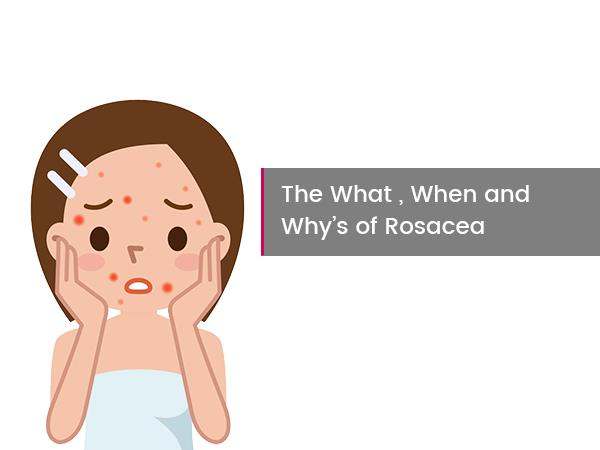It’s a common myth that rosacea only affects fair-skinned women. While it is true that rosacea is more often seen in lighter skin tones and in women, it doesn’t discriminate. It can affect all skin types and is often more severe for men experiencing the condition. Rosacea is believed to affect at least 16 million Americans and while it is a skin complaint, it isn’t as straightforward or as understood as other skin conditions.
What Is Rosacea?
Rosacea’s symptoms include episodes of flushing skin, spots, permanent redness of the skin and visible blood vessels, to name a few. People with the condition will experience good and bad episodes and symptoms usually affect the face but can be other parts of the body too. As already mentioned, it can affect any skin type and occurs in males as well as females. Darker skin tones may appear purple instead of red and can be less distinguishable in appearance. Less commonly, ocular rosacea affects the eyes, causing irritation, inflammation and dry eyes. It can also damage the cornea which can threaten eyesight.
What You Can Do About Rosacea
If your symptoms are persistent or chronic you should speak to a doctor. They can diagnose the condition and help identify triggers. Triggers are individual but include sunlight, temperature, stress, alcohol and various foods. There is no known cure, so being aware of your triggers can help you manage your condition and reduce symptoms. If spots are particularly bad then prescription medications, such as antibiotics, can help as well as creams to reduce redness.
Why You Need To Take It Seriously
Rosacea can be physically uncomfortable, with stinging and burning sensations, but as with any condition affecting the face it can have massive psychological impacts too. It’s not easy to hide your face in a world of social media and selfies. The world has come to believe that your image is a huge part of your identity. The condition can cause embarrassment and low self-esteem that can lead to individuals choosing to socialize less or not at all. Withdrawing from society can be very detrimental to one’s mental wellbeing and is another symptom itself that needs to be addressed. Managing your rosacea by committing to your treatment plan and avoiding your triggers is the best way to improve its appearance and therefore your psychological symptoms.
Now that you know more about this all too common condition and dismiss the myths, despite it often being unheard of by many. Having empathy and understanding can help individuals living with rosacea feel less self-conscious so that they can continue their day-to-day life with less negative psychological impact. While there is no cure there are effective treatments and plenty of support from the many other people living with rosacea.






,